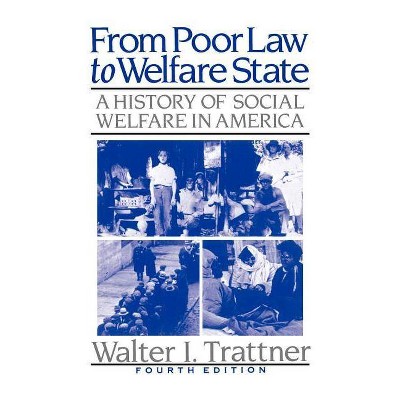Welfare State Reforms Seen from Below - by Bernhard Ebbinghaus & Elias Naumann (Paperback)

Similar Products
Products of same category from the store
AllProduct info
<p/><br></br><p><b> Book Synopsis </b></p></br></br><p>1. Introduction: Analysing Organized Interests and Public Opinion Towards Welfare Reforms.- Section 1: Organized Interests, Political Actors, and Social Groups.- 2. Membership or Influence Logic? The Response of Organized Interests to Retirement Age Reforms in Britain and Germany.- 3. Between Power and Persuasion: Explaining the Introduction of Statutory Minimum Wage Laws in Britain and Germany.- 4. Positions of Interests Groups towards Labour Market Reforms in Germany - A Novel Content Analysis of Press Releases.- 5. Class, Union or Party Allegiance? Comparing Pension Reform Preferences in Britain and Germany.- 6. Demand for Healthcare Reform by Public Opinion and Medical Professionals: A Comparative Survey Analysis.- Section 2: Public Attitudes Towards Reforms.- 7. The Popularity of Pension and Unemployment Policies Revisited: The Erosion of Public Support in Britain and Germany.- 8. Trust in Ageing Societies: Confidence in Pensions across Europe.- 9. Does Population Ageing Change Pension Reform Attitudes? A Survey Experiment on Political Knowledge, Ideology and Preferences.- 10. Increasing Conflict in Times of Retrenchment? Attitudes towards Healthcare Provision in Europe between 1996 and 2002.- 11. Conclusion: The Influence from Below - How Organized Interests and Public Attitudes Shape Welfare State Reforms in Europe.</p><p/><br></br><p><b> From the Back Cover </b></p></br></br><p>Studying the political economy of welfare state reform, this edited collection focuses on the role of public opinion and organized interests in respect to policy change. It highlights that welfare states are hard pressed to reform in order to cope with ongoing socio-economic and demographic challenges. While public opinion is commonly seen to oppose welfare cuts and organized interests such as trade unions have tended to defend acquired social rights, this book shows that there have been emergent tendencies in favour of reform.<br/><i><br/>Welfare State Reforms Seen from Below </i>analyses a wide range of social policies affecting healthcare, pensions and the labour market to demonstrate how social groups and interest organizations differ and interact in their approaches to reform. Comparing Britain and Germany, with its two very different welfare states, it provides a European perspective on the changing approaches to welfare.<br/><br/>This book will be of interest to those wanting to learn more about the politics of the welfare state and of relevance to students and academics in the fields of political economy and comparative social policy.</p><p/><br></br><p><b> About the Author </b></p></br></br><b>Bernhard Ebbinghaus</b> is Professor of Social Policy at the Department of Social Policy and Intervention and Senior Fellow at the Green Templeton College at University of Oxford, UK. Previously, he was Professor of Sociology at the University of Mannheim. His research focuses on welfare reform processes, particularly in the areas of pension and labour market policies.<br/> <br/> <b>Elias Naumann</b> is Post-Doctoral Researcher at the Collaborative Research Center SFB 884 "Political Economy of Reforms" at the University of Mannheim, Germany. His research interests include comparative welfare state research, public opinion and experimental methods in the social sciences.<br/>
Price History
Price Archive shows prices from various stores, lets you see history and find the cheapest. There is no actual sale on the website. For all support, inquiry and suggestion messages communication@pricearchive.us




















